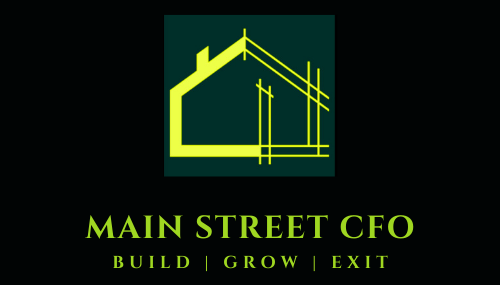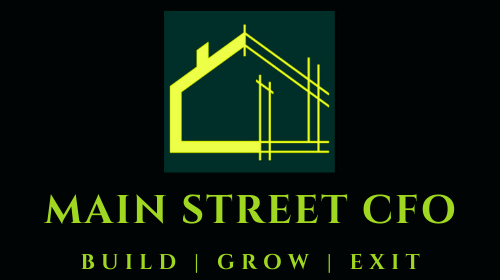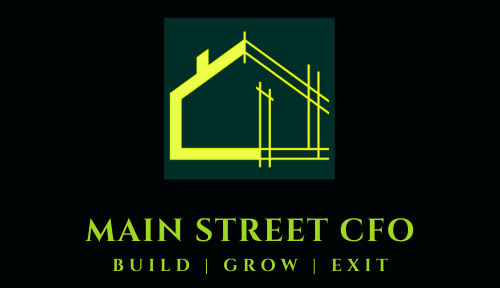Are you looking to exit?
Are you planning an exit?
Planning Your Business Exit: How a Fractional CFO Adds Value in the Final 12–36 Months
If you’re a business owner planning to exit your company within the next 1 to 3 years, congratulations! This is a major milestone, but make no mistake: Successful exits don’t happen by accident! Whether you're preparing for a sale, passing the torch to a successor, or merging with another company, your financial picture will be put under a microscope.
As fractional CFO’s, our job is to help you prepare your business for this scrutiny, to maximize its valuation, and create a smooth transition in the process. Here's how we help owners like you get ready for a successful exit.
1. Turning Financial Chaos into Clarity
Most businesses have some financial “dust” in the corners…old receivables, vague cost structures, or outdated reporting systems. A buyer/ investor will spot these issues immediately. You can clean house by:
- Establishing accurate, current financial statements
- Standardizing reporting and implementing accrual accounting (if needed)
- Addressing revenue recognition or expense allocation issues
Value Add: A clean financial picture builds trust and speeds up due diligence can oftentimes increase perceived business value.
2. Increasing EBITDA and Improving Cash Flow
EBITDA (Earnings Before Interest, Taxes, Depreciation, and Amortization) is a key metric for business valuation. We perform a thorough analysis of your operations to:
- Eliminate unnecessary expenses
- Identify opportunities to improve margins
- Restructure debt and vendor contracts to improve profitability
- Increase working capital efficiency
Value Add: Every dollar of EBITDA increase can translate to $3–$7 (or more) in added enterprise value (depending on the industry).
3. Building a Forecast and Budget Framework
Buyers need a roadmap, not just a snapshot. A 12–36 month financial forecasts that aligns with your exit timeline should include:
- Projected income statements, balance sheets, and cash flow statements
- Scenario planning for various market conditions and deal outcomes
- Capital expenditure and growth assumptions
Value Add: A clear growth story backed by sound financials can justify a premium valuation and reduce buyer skepticism.
4. Identifying and Reducing Owner Dependency
Many businesses are way too reliant on their owner. This can scare off buyers. You need to assess how dependent your business is on you and and find ways to:
- Delegate/outsource critical tasks
- Build dashboards and KPIs so others can manage and track performance
- Establish operational processes and SOPs that allow the business to run independent of who is in charge
Value Add: Businesses that can run smoothly without the owner attract more buyers. Additionally, they can sell for higher multiples.
5. Preparing You for Due Diligence
When the time comes to open your books to a buyer, it’s go time. Prepare yourself for:
- Pre-due diligence checklists
- Document data room setup and document organization
- Stress-testing the numbers for consistency and defensibility
- Coordination with your tax, legal, and M&A team of advisors
Value Add: Reduces surprises during diligence, this allows buyers to stay confident, so deals don’t fall apart.
6. Collaborating with You and Your Exit Team
You may be working with M&A advisors, CPAs, lawyers, and consultants. Having a financial quarterback assists in:
- Translating complex numbers into actionable insights for your advisors
- Helping negotiate terms based on financial performance
- Identifying post-sale tax strategies
Value Add: Ensures financials align with deal terms and support a tax-efficient exit.
Ready to Exit Smart?
Exiting your business is more than a transaction…it’s literally a transformation. The best exits happen when business owners plan ahead and partner with the right professionals.
A Fractional CFO becomes a key part of your transition team…focused on preparing your business for sale, maximizing value, and giving you the confidence to move forward.
If you're 12–36 months from an exit, now is the time to start. Let’s talk.













